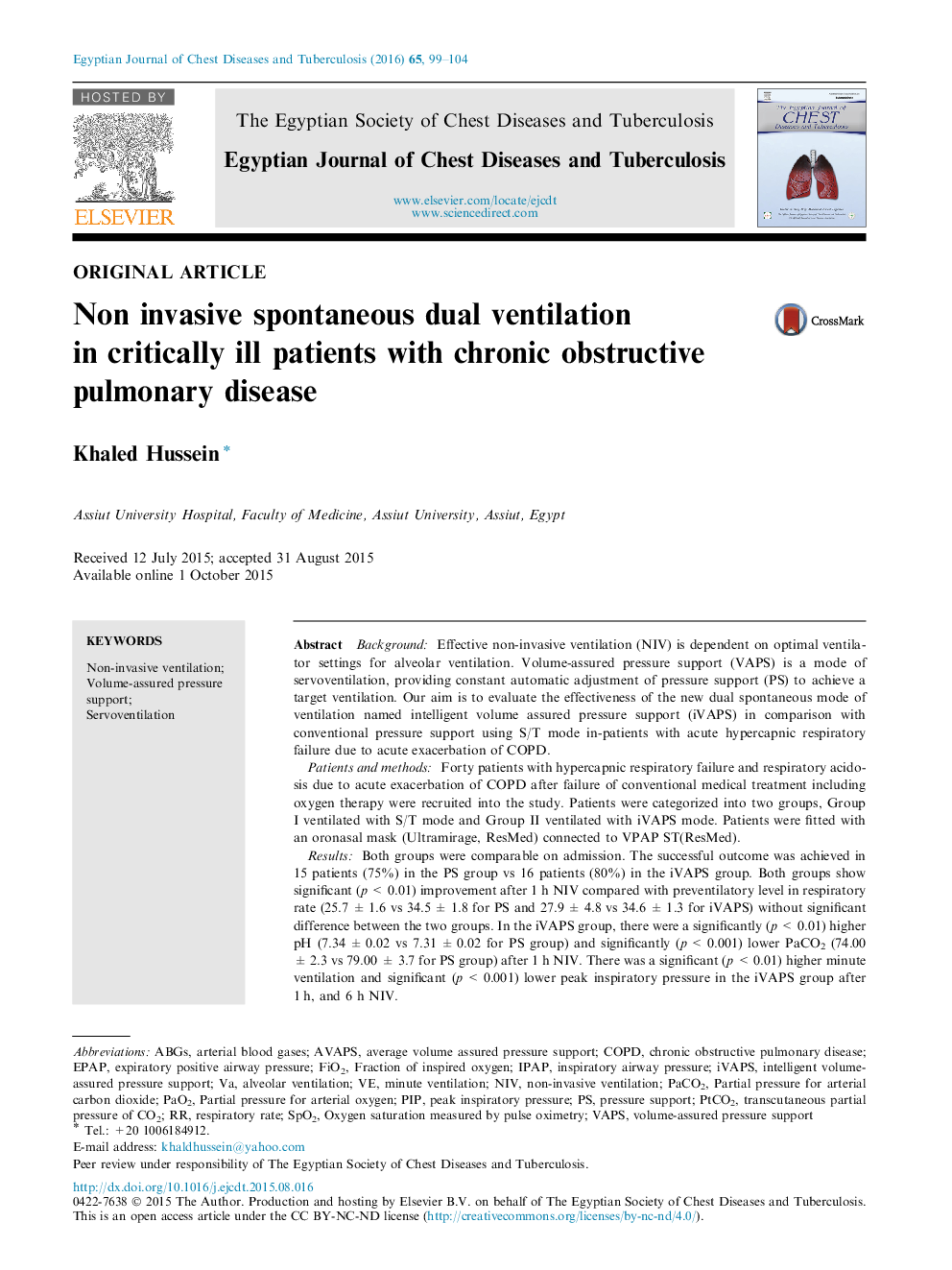| Article ID | Journal | Published Year | Pages | File Type |
|---|---|---|---|---|
| 3399890 | Egyptian Journal of Chest Diseases and Tuberculosis | 2016 | 6 Pages |
BackgroundEffective non-invasive ventilation (NIV) is dependent on optimal ventilator settings for alveolar ventilation. Volume-assured pressure support (VAPS) is a mode of servoventilation, providing constant automatic adjustment of pressure support (PS) to achieve a target ventilation. Our aim is to evaluate the effectiveness of the new dual spontaneous mode of ventilation named intelligent volume assured pressure support (iVAPS) in comparison with conventional pressure support using S/T mode in-patients with acute hypercapnic respiratory failure due to acute exacerbation of COPD.Patients and methodsForty patients with hypercapnic respiratory failure and respiratory acidosis due to acute exacerbation of COPD after failure of conventional medical treatment including oxygen therapy were recruited into the study. Patients were categorized into two groups, Group I ventilated with S/T mode and Group II ventilated with iVAPS mode. Patients were fitted with an oronasal mask (Ultramirage, ResMed) connected to VPAP ST(ResMed).ResultsBoth groups were comparable on admission. The successful outcome was achieved in 15 patients (75%) in the PS group vs 16 patients (80%) in the iVAPS group. Both groups show significant (p < 0.01) improvement after 1 h NIV compared with preventilatory level in respiratory rate (25.7 ± 1.6 vs 34.5 ± 1.8 for PS and 27.9 ± 4.8 vs 34.6 ± 1.3 for iVAPS) without significant difference between the two groups. In the iVAPS group, there were a significantly (p < 0.01) higher pH (7.34 ± 0.02 vs 7.31 ± 0.02 for PS group) and significantly (p < 0.001) lower PaCO2 (74.00 ± 2.3 vs 79.00 ± 3.7 for PS group) after 1 h NIV. There was a significant (p < 0.01) higher minute ventilation and significant (p < 0.001) lower peak inspiratory pressure in the iVAPS group after 1 h, and 6 h NIV.ConclusionNon invasive spontaneous dual ventilation using intelligent volume assured pressure support (iVAPS) is characterized by stable alveolar ventilation with lower and variable inspiratory pressure and earlier improvement of respiratory acidosis when compared with conventional pressure support.
